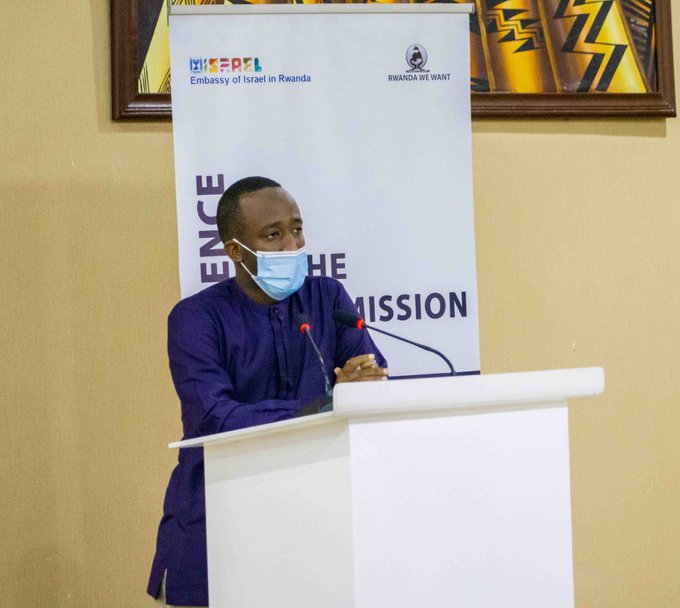They say time heals everything. This saying would translate to a properly healed nation 26 years after the 1994 genocide against the Tutsi, after all a wound may take a few years to completely heal, according to science.
But somehow in the country of a thousand hills, some wounds are still fresh and so deep that they’re even being transmitted to the younger generation that didn’t live through Rwanda’s darkest hour in what is called transgenerational trauma. The term transgenerational trauma or intergenerational trauma asserts the transfer of emotional, physical, and social pain from a person to his/her descendants.
Its concept came to light a few decades after WWII when various studies proved that children and grandchildren of Holocaust survivors demonstrated some symptoms of trauma such as nightmares, emotional and behavioral problems showing that the initial trauma of their parents or grandparents had far-reaching effects.
Rwanda we want organization founded and being led by youth who were born after the 1994 genocide against the Tutsi understand that in order to break the cycle for future leaders to inherit a healed nation, the first step is to recognize the existence and raise awareness on symptoms, impacts and everything to know about the transgenerational trauma.
It is in that regard that RWW hosted the conference on the transmission of trauma on 26th November with the support of The Embassy of Israel in Rwanda to bring together the youth, academicians, and other stakeholders from both Rwanda and Israel to share experiences, learn and come up with resolutions on how to advance on the journey of healing.
Like everyone, Tristan Murenzi, the chairperson of RWW came to the conference looking for answers not only for his questions but also for the generations to come.

“I would like to be able to give appropriate answers to my children one day when they ask me what was my contribution to the journey healing and coping of trauma for my country,” he said, adding that he was grateful to Amb. Ron Adam, the Ambassador of Israel in Rwanda, for having welcomed the idea of his quest and hence the conference.
On a more personal note, Amb. Ron Adam told the participants that he experienced trauma and that such conferences should provide a space of sharing which is a huge step towards healing.

“Being the 2nd generation Holocaust survivor, I have experienced trauma over the years, and using these spaces for sharing memories, feeling and trust can be a big step on the journey of healing,” he remarked.
Scholars debunk the mysteries of transgenerational trauma

This is not far from Dr. Eric Ndushabandi’s (political scientist and researcher) discussion who pointed out shouting silence about what happened alongside extreme poverty among others to be the source of trauma that can lead to intergenerational trauma whose symptoms can be anxiety, mistrust, fear, excessive vengeance behaviour, anti-social behaviour among others.
Other scholars such as Prof. Amit Shrira and Dr. Benjamin Molov from Bar-Ilan university painted a picture of the Holocaust survivors and transmission of trauma whereas joining them Chantal Mudahogora and Beatha Mukarusanga who are both therapists shone a light on therapy for intergenerational trauma.

They highlighted that trauma is transmitted through socialization, communication as well as biologically and that perceptions, cognitions, emotions and interpersonal functioning are what’s being transmitted.
Nevertheless, therapy was mentioned as a response to trauma whose goals commonly are; encouraging expression of adult-children, separating a child’s identity from the parent’s as well as improving knowledge of family narrative among others.
On the other hand, the true traumatic experience is a terrible thing to go through, nonetheless, human beings have the capacity to rise from ashes like the phoenix. The conference wasn’t only going to talk about the transmission of trauma in isolation, for knowing about it only isn’t enough. That’s where resilience jumps in because life after trauma is possible. Over the past years, here in Rwanda, the role of safe circles for youth such as that day’s conference has been to enhance healing and resilience. And different resilience experiences were shared by brave young people namely; Hassan Dukuzumuremyi, Godance Muhoza and Jean CLaude Musabyeyezu among others who were present.
Government’s efforts
Notwithstanding the arduous journey that the Rwandans, especially the survivors, are taking, the government has been with them at every step of the way according to Solange Tetero, the Director General of youth empowerment at the Ministry of youth and Culture.

“Nowadays the government has invested in re-establishing the social fabric of our country in the aftermath of the genocide against the Tutsi and the youth have greatly contributed to the cause, starting from the liberation struggle and we applaud their efforts.”
Among the governments’ efforts brought forward by Fidele Ndayisaba, the Executive Secretary at National Unity and Reconciliation Commission, are Peace education program integrated in all schools’ subjects from primary to secondary schools, youth Spaces for dialogues in schools and community have been established to strengthen resilience in terms of addressing the consequences of the genocide naming but a few.

He added that as long as the healing and reconciliation processes can be, “there is a need to promote intergenerational dialogue and other social healing mechanisms to make sure our youth have enough resilience to deal with their past and forge their future.”
Among the initiatives that were suggested from group discussions that prompted the participants to open up about their experiences with transgenerational trauma and where possible, to come up with initiatives to break the cycle of intergenerational trauma while also raising more awareness on the issue as well as to further the healing process, arts and games were suggested as pipelines of a flow of messages and information about the subject matter, social media information sharing, deep research on trauma and creation of free psychological health centres naming but a few.

For more pictures of the event click here.
